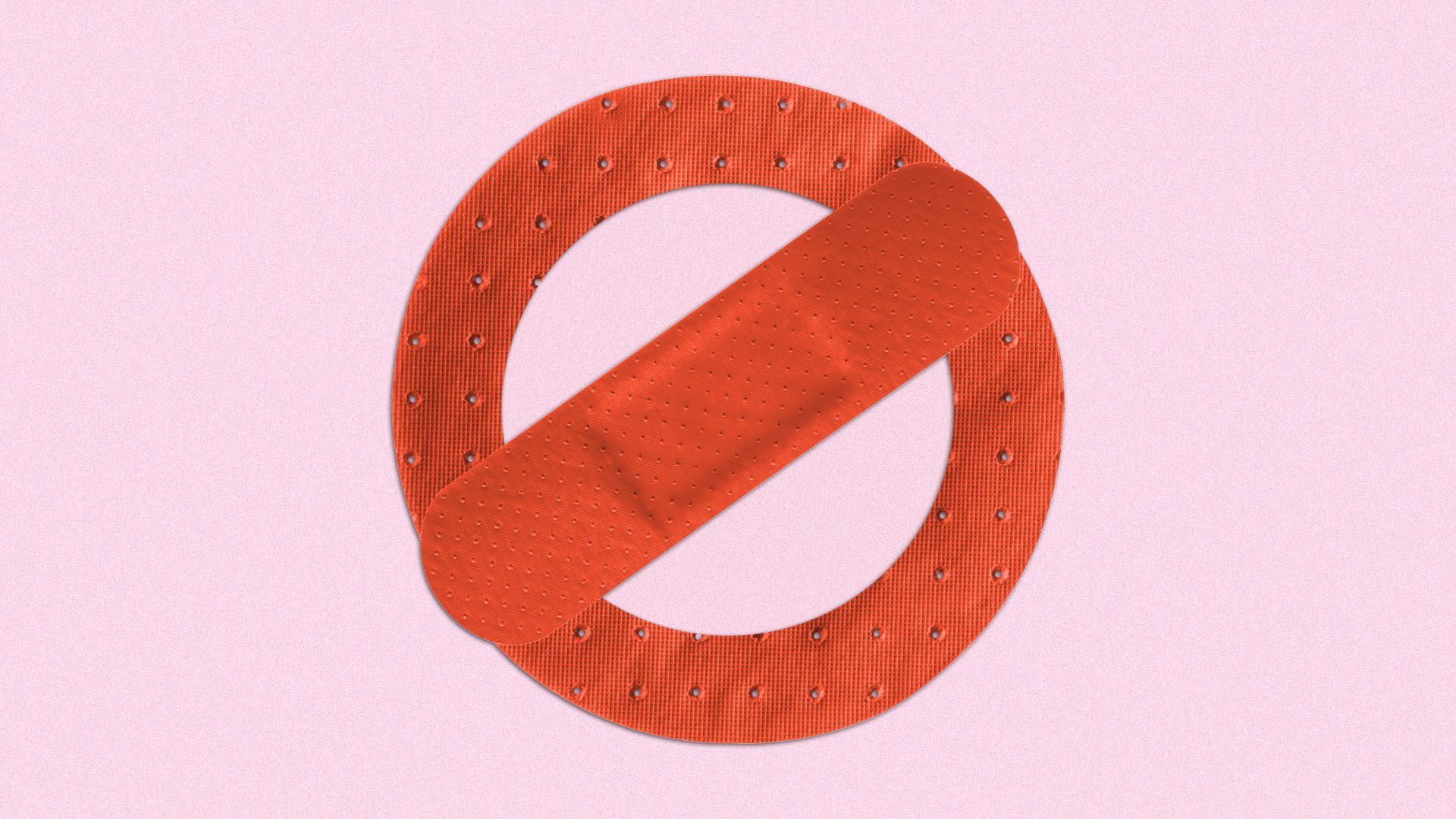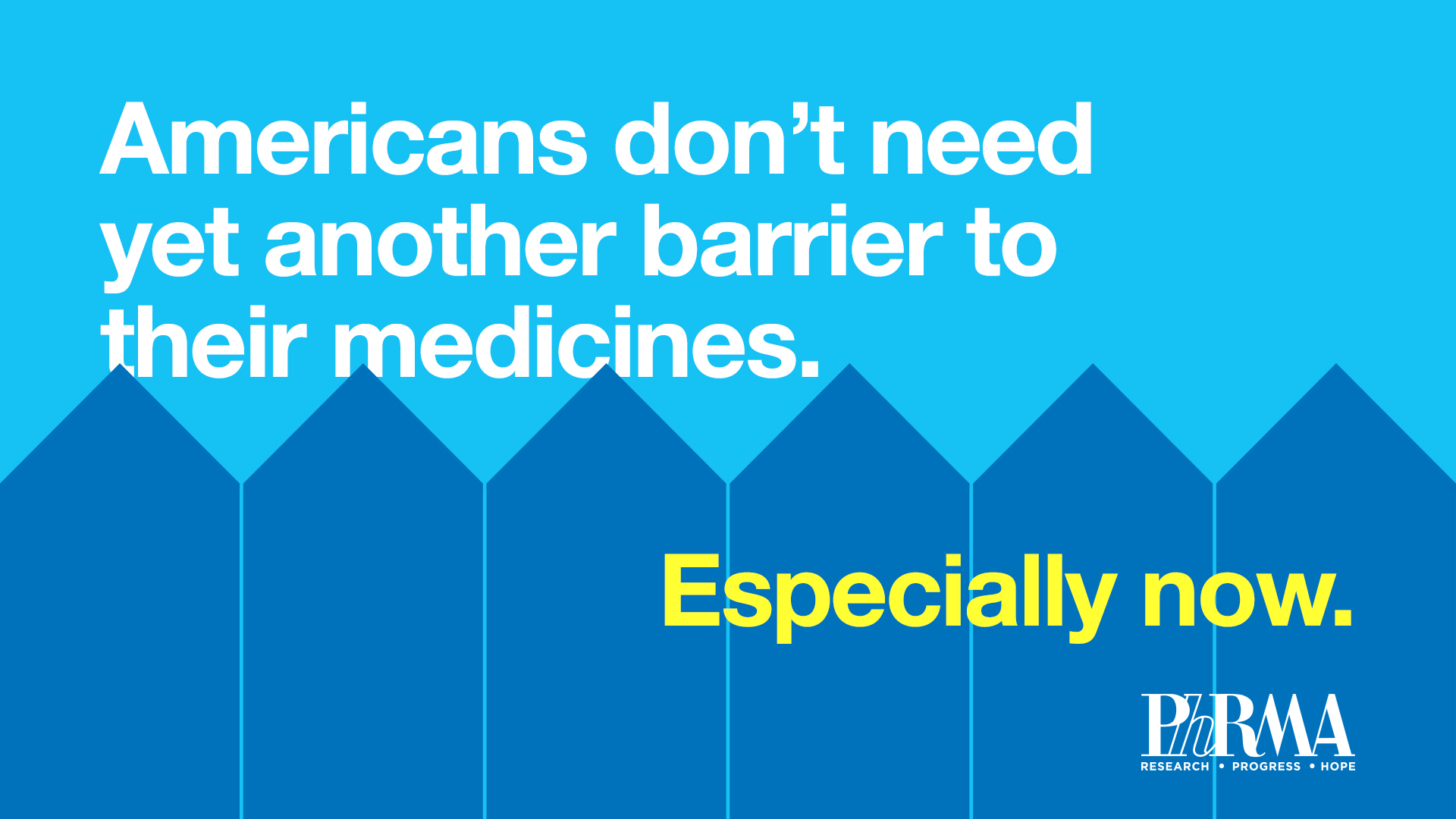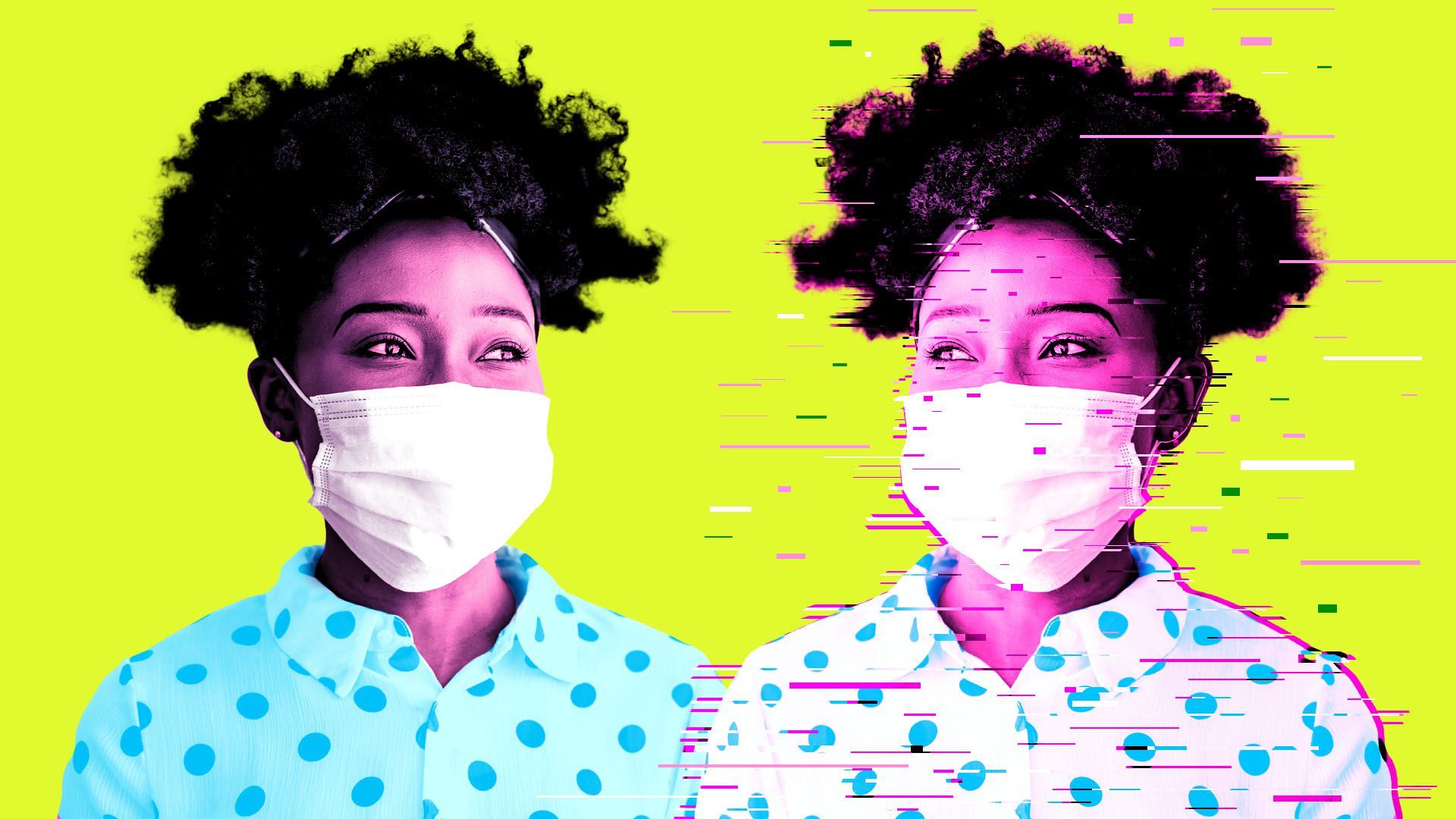| | | | | | | Presented By PhRMA | | | | Vitals | | By Caitlin Owens ·May 06, 2021 | | Good morning. Today's word count is 1,116, or a 4-minute read. | | | | | | 1 big thing: The downside of a patent waiver |  Data: YCharts; Chart: Sara Wise/Axios It will take more than waiving patent protections for coronavirus vaccines — which the Biden administration now says it supports — to fix the gaping global divide in access. Why it matters: Waiving drug companies' intellectual property rights risks setting a bad precedent for future investment in new drugs. - And that risk may not be worth it without additional steps to meaningfully increase the availability of shots across the world.
Driving the news: The U.S. "will actively participate in text-based negotiations at the World Trade Organization" to waive intellectual property protections, U.S. World Trade Organization Ambassador Katherine Tai said in a statement yesterday, adding that the negotiations will take time. If agreed to, a waiver "will create a risk-free environment for any potential manufacturers to go and reverse-engineer some of these vaccines, if they have the capability," said Tahir Amin, co-founder and co-executive director of the Initiative for Medicines, Access & Knowledge. The other side: "The only immediate beneficiary here is China, who has long sought a dismantling of these global rules that protect America's intellectual property, and is positioned to copy these vaccines," former FDA commissioner Scott Gottlieb said. Some experts and activists say other steps — including funding and logistical support to scale up manufacturing — would increase global vaccine supply more quickly. - And they're worried that weakening patent protections would carry some significant long-term risks, especially in future pandemics.
- "I wonder whether we want to send potential firms the message that the larger the health crisis, the less we will respect and protect your IP. That's a great system if you think this is the last pandemic we'll face," tweeted Craig Garthwaite, a professor at Northwestern University.
Go deeper. |     | | | | | | 2. Coronavirus cases hit a seven-month low |  Data: CSSE Johns Hopkins University; Map: Andrew Witherspoon/Axios Coronavirus infections in the U.S. are now at their lowest levels in seven months, thanks to the vaccines, Axios' Sam Baker and Andrew Witherspoon report. The big picture: The vaccines are turning the tide in America's battle with the coronavirus. Deaths and serious illnesses have dropped significantly, and now cases are falling too — an important piece of protection for the future, if we can keep it up. By the numbers: The U.S. averaged about 48,000 new cases per day over the past week. - That's a 13% improvement over the week before, and it's the first time since October that average daily cases have dipped below 50,000.
- 20 states saw fewer new cases over the past week than they did the week before, while outbreaks got bigger in 10 states.
- New Jersey saw the biggest improvement over the past week, with a 40% drop in new cases, followed by Connecticut, at 30%.
Why it's happening: Over half of all American adults have now gotten at least one shot of a vaccine, and 41% of adults are fully vaccinated. The bottom line: The vaccines are working. They are saving lives and beating back the virus right now, and they can minimize the virus' presence in our lives in the future — if enough people get them. Share the map. |     | | | | | | 3. Schools unlikely to require COVID vaccine |  | | | Illustration: Sarah Grillo/Axios | | | | Even if most middle and high schoolers become eligible for the COVID-19 vaccine over the summer, most schools aren't likely to mandate them, at least not this year, Axios' Marisa Fernandez reports. Why it matters: Children are at a low risk for serious illness from COVID-19, but allowing the virus to circulate among unvaccinated kids could lead to new, more dangerous variants and slow down the protection of adults, experts say. - But only 52% of parents of a child under 18 say they're likely to vaccinate their kids as soon as they're able, an Axios/Ipsos survey shows.
What happening: The Los Angeles Unified School District, which initially said it would require students to get vaccinated once the shot was widely available, walked back its statement after lawsuit threats. - Other major school districts have either said they won't mandate vaccines or that they're awaiting guidance from local health officials before making a decision, Bloomberg reports.
The bottom line: Experts say schools should forego mandates — and the political uproar and lawsuits they would bring — and simply try to vaccinate as many students as possible voluntarily. |     | | | | | | A message from PhRMA | | Americans don't need another barrier to their medicines | | |  | | | | We have to lower what patients pay for their medicines. We also have to make sure they are getting the medicines they need. The challenge: H.R.3 forces a choice between one or the other. There's a way to do both, but H.R.3 isn't it. Get the facts. | | | | | | 4. Health benefits keep workers from leaving |  Data: Gallup; Chart: Sara Wise/Axios One in six U.S. workers with employer insurance are staying in a job they may otherwise leave because they're afraid of losing their health benefits, according to a new West Health-Gallup survey. Between the lines: Black and low-income workers are particularly likely to say they're staying at their job for the health benefits it provides. - More than half of respondents said they were concerned that the costs of health care services and prescription drugs will continue to rise until they're unaffordable.
|     | | | | | | 5. Hospital overuse of tests persists | | Hundreds of thousands of tests and procedures are unnecessary, according to recent analyses from health care think tank the Lown Institute. Why it matters: By some estimates, as much as a quarter of U.S. health care spending is waste, Axios' Tina Reed writes. Details: Using a Medicare claims database between 2016 and 2018, the institute ranked 3,100 U.S. hospitals based on their likelihood of ordering unnecessary tests or procedures such as coronary stents for stable heart disease. - More than six in 10 hysterectomies analyzed in the data met the established criteria for overuse, with the rate of hysterectomy overuse in North Dakota and Wyoming topping 90%.
- As many of 200,000 patients might have had unnecessary stents.
More than 40 of the 50 lowest-performing hospitals were in the South. - Five of the 10 lowest-ranked hospitals were in Florida.
- Nine of the top 50 performing hospitals were in New England and 10 were located in the Pacific Northwest.
In a related study published in JAMA Open Network in April, researchers from the institute also found for-profit and non-teaching hospitals were more likely to order unnecessary tests. What we're hearing: "It speaks to the power of habit, weak penetration of actual science and certainly a lot of prominent financial incentives for hospitals and doctors," Vikas Saini, president of the Lown Institute, told USA Today. |     | | | | | | 6. 1 cool thing |  | | | Illustration: Sarah Grillo/Axios | | | | Researchers are creating "digital twins" of coronavirus patients to study long-haul COVID-19, Axios' Bryan Walsh reports. Why it matters: An estimated one in 20 COVID-19 patients are likely to suffer from some long-term effects, but doctors still don't know why or how best to care for them. Digital twins promise to speed efforts to investigate a major medical mystery. How it works: A digital twin is a virtual representation of an object, a system or, in this case, a long-haul COVID-19 patient. - "Digital twins allow you to perform all kinds of testing, but in a virtual simulation," says Jeremy Ford, vice president of strategic giving and social innovation at Dell Technologies.
What's happening: Dell on Wednesday announced a collaboration with i2b2 transSMART Foundation to create and study digital twins of tens of thousands of long-haul COVID-19 patients. What's next: "The same kind of approach can be applied in the future to autoimmune disorders, degenerative disorders, cancers and other areas," says Ford. |     | | | | | | A message from PhRMA | | Congress: Here's why H.R.3 isn't the solution to lower cost drugs | | | | Americans don't need another barrier to their medicines. We have to lower what patients pay for their medicines. We also have to make sure they are getting the medicines they need. H.R.3 forces a choice between one or the other. There's a way to do both, but H.R.3 isn't it. Get the facts. | | | | | | Axios thanks our partners for supporting our newsletters.
Sponsorship has no influence on editorial content. Axios, 3100 Clarendon Blvd, Suite 1300, Arlington VA 22201 | | | You received this email because you signed up for newsletters from Axios.
Change your preferences or unsubscribe here. | | | Was this email forwarded to you?
Sign up now to get Axios in your inbox. | | | | Follow Axios on social media:    | | | | | |
Post a Comment
0Comments